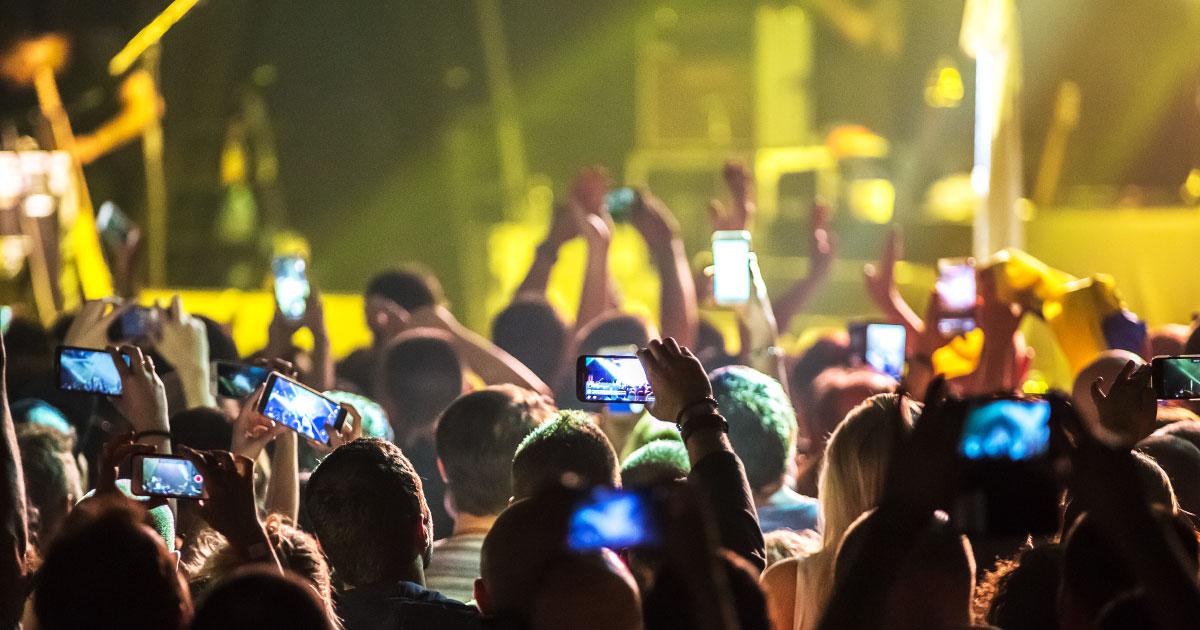I had the opportunity to chat with music booker Jason Swartz, founder of Alliance Talent, about the challenges planners face when seeking to include live music in an event’s schedule and the state of the festival scene in the U.S.
Have you booked much talent for association or non-profit events? If so, what unique challenges arise?
Through my company, Alliance Talent, I have been actively involved in non-profit events since we began booking concerts in the early 2000s. When it comes to non-profits, I haven’t faced many challenges that are all that different than with any other client. Typically, when an event is run by a non-profit they still have budgets available for booking talent. We go through the process of getting to know the client, the overall goals for the event’s musical direction, press needs, social media and, of course, the budget. Once that’s dialed in, we obtain the lists needed to make a firm decision on direction. The main challenge that comes with non-profits, like universities and other associations with multiple decision makers, is getting everyone on the same page in terms of musical direction.
Many people choose talent based on their personal interests with the assumption that others will also be engaged by what they like. With 17 years of experience, I know how to get an organization aligned. Sometimes this involves combining an opening act of one genre and a headliner of another or simply guiding them on a list of artists that works for everyone’s expectations.
What advice do you have for planners who are in the habit of hiring 70s or 80s cover bands year after year?
It’s always fun to book 70s, 80s and other theme based cover bands because like DJs they can play a wide variety of music that will appeal to everyone. There is always that concern that choosing a specific act with their own music may lead to them playing 2-3 songs that everyone loves and then having the remainder of the set filled with songs that don’t appeal to the audience.
Exceptions to the Rule
If an organization really wants a 70s and 80s style show, we guide them on acts that are versed in doing special events for charities, non-profits and corporate organizations. Those kinds of acts will know that they need to play their own music, but they will also add in some jams that everyone can relate to. Often, those include their own versions of covers from that era. Also, the idea of having the actual band that played those original songs adds a much stronger cache to an event both for attendance, press and social media.
Showing organizations how they can benefit from marketing elements makes a big difference from simply booking a cover band. Also, adding a host DJ to the event to warm up the crowd prior and post to a band’s performance is always a great way to satisfy everyone’s needs for a variety of music from a specific decade.
How can planners help their events get out of a rut of offering the same kind of music year after year?
If an event planner is looking to switch things up from past years, they need to make a leap of faith and just jump into it. Again, I’d recommend starting by connecting with a professional talent buying agency that can really guide them through the best options for their budget, theme and overall experience.
I’d also recommend internally to put together a list that aligns with their theme or genre, so that when they do connect with a talent buying agency they will already have taken the steps to get their entire board on the same page. Once a specific list of 10-20 acts has been pre-approved it will be that much easier for the buyers to negotiate on their behalf knowing the event is ready to go.
What does it typically take for an organization to shake things up and get more creative with its auditory entertainment?
They need to look at the benefits of having an actual act with a known national name. As mentioned, the press and the cache will help with the marketing and will help sell tickets for the event that year. In addition, the organization will start to build up a track record of having known national talent, which will make it easier to get bigger names on board year after year. Musicians, agents and managers always feel more comfortable to play an event or a festival once they know other national names have played it in the past or are on board for the current year.
Not all events have significant budgets for entertainment. Can you share some tips to help planners find and pay for recognized bands?
Checking to see who’s already in town or is local is a great way to get some kind of discount. The less a band must travel, the less they will charge. Also, if a non-profit organization is hosting an event for a specific charity or cause, it is often possible to identify musicians that are supportive of similar causes. These acts are often likely to perform at a discount if it is a cause they believe in.
How can planners best locate lesser-known acts that are original but also affordable?
The best way to find known acts at a discount is to go through experienced talent buying agencies. It takes a knowledgeable team that is talking to artists, managers and agents every day to know which artists are more eager for gigs and looking to do things at more reasonable prices. As mentioned, researching who is on tour and close by to where the event is taking place may also lower costs.
What should planners be wary of when booking entertainment?
Event planners need to ensure that the company they are dealing with for booking talent is experienced and well referenced online. Get some documentation from them on their history or ask them for some references.
Also make sure that when you agree to the booking you’re aware of all the additional costs. Booking talent doesn’t just involve a fee for talent, there also may be an additional fee for the agency booking it, as well as additional costs for the talent itself. Those costs usually involve travel, hospitality and backline production equipment.
One benefit of going through experienced talent buying agencies is that reputable ones will be able to compile all of these costs into one all-in fee so planners can focus on what they do best rather than dealing with all the logistical needs of the performers and their teams.
Now it seems that a set group of acts simply tour between festivals rather than each major festival booking a fully or mostly unique lineup. How is this affecting the draw of festivals?
Even though one would think that having similar acts at various festivals would cause attendance to go down, festival attendance over the decades (since Lollapalooza) have gone up significantly. Acts that typically only tour once every few years can tour more often since festivals pay top dollar.
Acts like Radiohead, Paul McCartney, Bjork and a huge list of others that formerly toured infrequently now tour a lot more. That means more amazing shows by awesome talent across a wider variety of regions. Also, social media has really helped propel festivals. When an artist has an amazing performance at one festival, there is a social media effect that enables people to have the same amazing experience online.
What are some aspects of festival organization and planning that you think could be improved upon?
I’d like to see an increase in creativity when it comes to choosing locations. In the last 10 years, the festival experience has really come of age in America, but how many times are we going to have a festival on a grass field or in a concrete parking lot.
I would love to see festivals branch out to create more events in nature. Whether its eco-concerts in a forest, at beach locations, alongside rivers or in the mountains, featuring music in other natural environments would really enhance the festival experience.
Also, the concept of creating communities within a festival is fun and encourages people to remain on the grounds for the duration of the festival. Creating a community opens all kinds of new experiences related to food, architectural design and communication between fans. In this setting, people won’t just go home from a festival with a phone filled with live show content and a t-shirt. Now they will return having really connected with new people, and will have experienced something unique and fulfilling.
Are there some examples of festival organizers doing this right that you can share?
Lightning in a Bottle in Bradley, Calif., is a really cool festival that continues to make its festival setting more interesting from a community and environmental standpoint. Adding more art structures, lighting and layouts in their campgrounds has created a cool forest-like community.
Also a new festival in Negril, Jamaica, called Tmrw.Tday Cultural Fest was quite interesting as a destination festival that incorporated beach, jungle and even rock cave parties into its weekend itinerary. I thought that was amazing and has a tremendous potential for growth.
These events do not need to be limited to environments, I think festivals could try throwing an event at a water park or amusement park as well. Festivals need to remember in the end that they are throwing a massive party and potentially creating a community for a day. Proper festivals really should be more than just multiple concert performances going on at the same time surrounded by carnival rides and the same old typical food stands.
This article was originally published on our affiliate site PlanYourMeetings.com.


